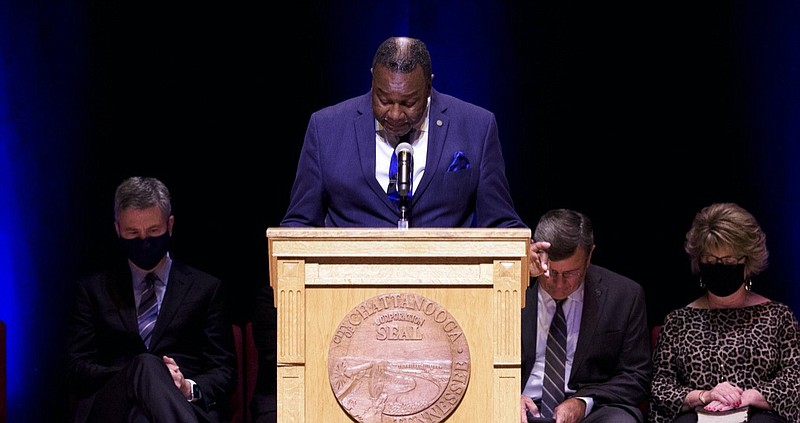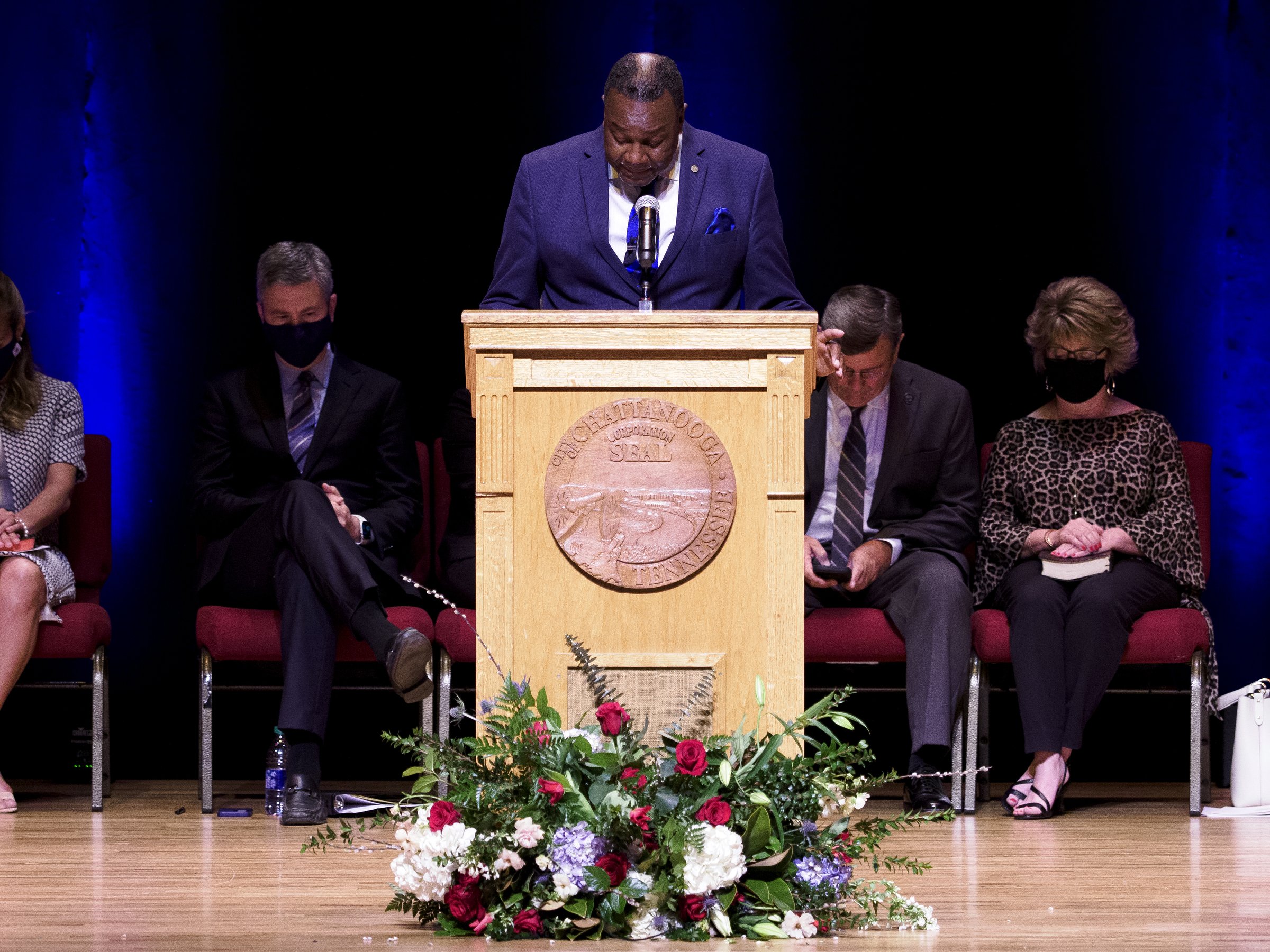Given strong strains of COVID-19 vaccine resistance in their flocks, some white evangelical leaders are too concerned about blowback to talk about the matter.
Micah Fries is not.
"I'm not worried about that," Fries said. "This is too important. This matters too much."
On Wednesday evening, Fries hosted a discussion about the COVID-19 vaccine with Patrick Ellis, a longtime friend and director of pharmacy for CHI Memorial Hospital.
Fries, director of engagement at GlocalNet and former senior pastor of Brainerd Baptist Church, told the Times Free Press he has been frustrated by the low vaccination rate in North Georgia where he lives and wanted to do something to raise awareness, especially among his social media followers who number around 20,000.
Theologically, the evangelical tradition is supportive of vaccines in ways similar to the majority of Christian denominations. However, a variety of polls from The Associated Press-NORC Center for Public Affairs Research to the Pew Research Center to the Kaiser Family Foundation found white evangelicals have among the highest percentage of respondents saying they will not get the vaccine.
The Kaiser Family Foundation's most recent vaccine report, published Aug. 4, found 23% of white evangelicals across the nation said they would "definitely not" get the vaccine. The only other demographic group with a higher percentage of "definitely not" respondents was uninsured Americans under age 65.
The low vaccination rate presents a kind of disconnect between those in the pews and those at the pulpit. In January, 95% of evangelical pastors surveyed by the National Association of Evangelicals said they would receive the vaccine and 89% said they would encourage others to do the same. The Associated Press has reported some church leaders are too worried about blowback from their congregations or boards if they discuss the vaccine.
"Those of us in our community, the white evangelical community, should prioritize and value truth, which means we ought to be able to go to those who know, who have the information and know," Fries said. "And the vast, vast, vast majority of the medical community is united on this topic. And so we ought to be prioritizing truth and we ought to be prioritizing compassion for our neighbors."
While there is a shared theological language between Fries and other evangelicals, he said he takes a more rational approach. The data says vaccines are safe and effective, especially in preventing severe infection or death from the virus. The medical community is nearly united behind the safety and importance of the vaccines.
"What's ironic is the people that get sick who are opposed to the vaccine are inevitably going to end up trusting the medical professionals who have asked them to get a vaccine in the first place," Fries said. "So we can either choose to trust them now and get the vaccine or trust them later when our lives could be hanging in the balance."
Area churches have played a major role in the COVID-19 pandemic - from hosting vaccination events and pastors promoting vaccines to sanctuaries becoming superspreader locales for the virus.
The city's "Get Vaccinated Chattanooga" campaign has amplified the voices of area pastors who are vaccinated to talk about why getting a dose is important to consider.
"I have served so many funerals during this time, and I have observed the trauma of families who have lost loved ones. So I got vaccinated," the Rev. Ternae Jordan Sr., senior pastor of Mt. Canaan Baptist Church, said in one of the campaign's promotional videos.
However, the avoidance of talking about the importance of vaccines has frustrated efforts to increase vaccination rates, especially in the South where the delta variant is causing a surge in hospitalizations. Southern states, particularly Alabama and Mississippi, have among the lowest vaccination rates in the country, according to data from the Centers for Disease Control and Prevention. Nationwide, 51% of residents are fully vaccinated compared to 41% of Tennessee residents, according to data from the CDC and the Tennessee Department of Health.
(READ MORE: Many Bible Belt preachers silent on shots as COVID-19 surges)
Public health experts have said pastors and other faith leaders play a key role in communicating the safety and importance of COVID-19 vaccines since they are among the most trusted members of a community.
People are buried under a mountain of information online, Ellis said, which leaves them confused and unsure about what to do. Religious leaders and community leaders can help bridge the divide between people's uncertainties and factual information, he said.
"It's all about having some trust. There's so much information," Ellis said. "People struggle with who and what can they trust. I think the more we have partners and people in the community, whether that's local government officials or faith-based leaders, I think they all have a huge role as a partnership as we try to get this information and real information into people's hands."
Contact Wyatt Massey at wmassey@timesfreepress.com or 423-757-6249. Follow him on Twitter @news4mass.

